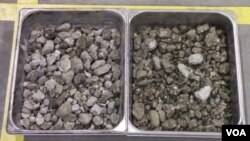MomofOne
Rookie
- Jul 23, 2014
- 19
- 5
- 1
Indeed. Found a great read on recycling here Got Recycling? Need More! | food for thoughtful action.
It is not just about bottles and cans, there is still a lot to do with our waste foods. Just a thought of sharing.
I wonder if you guys have done your share in helping our fellowmen and our environment? Me, I have been doing recycling at home and even teach my kids about it and let them do the same at their early age.
It is not just about bottles and cans, there is still a lot to do with our waste foods. Just a thought of sharing.
I wonder if you guys have done your share in helping our fellowmen and our environment? Me, I have been doing recycling at home and even teach my kids about it and let them do the same at their early age.



